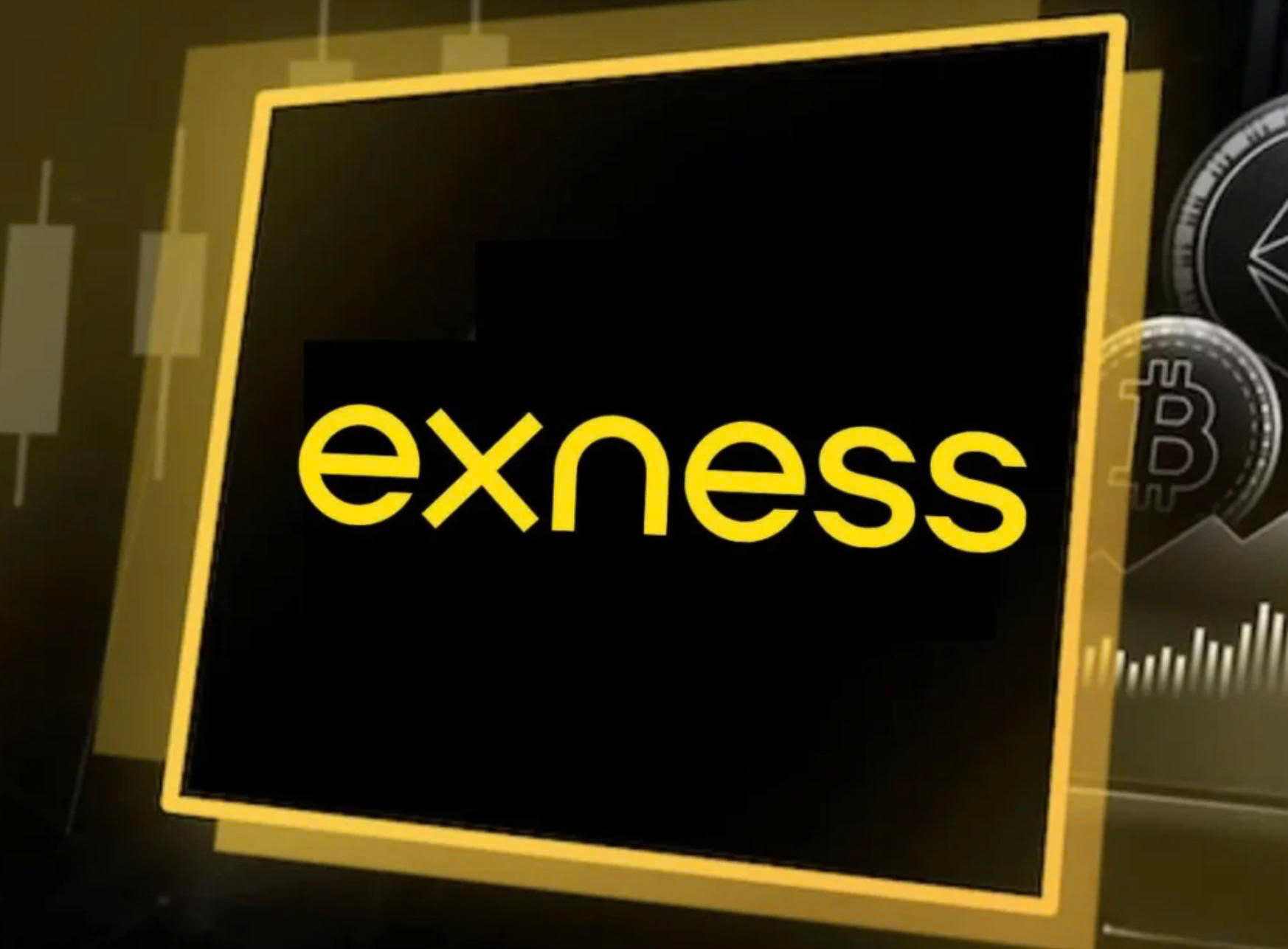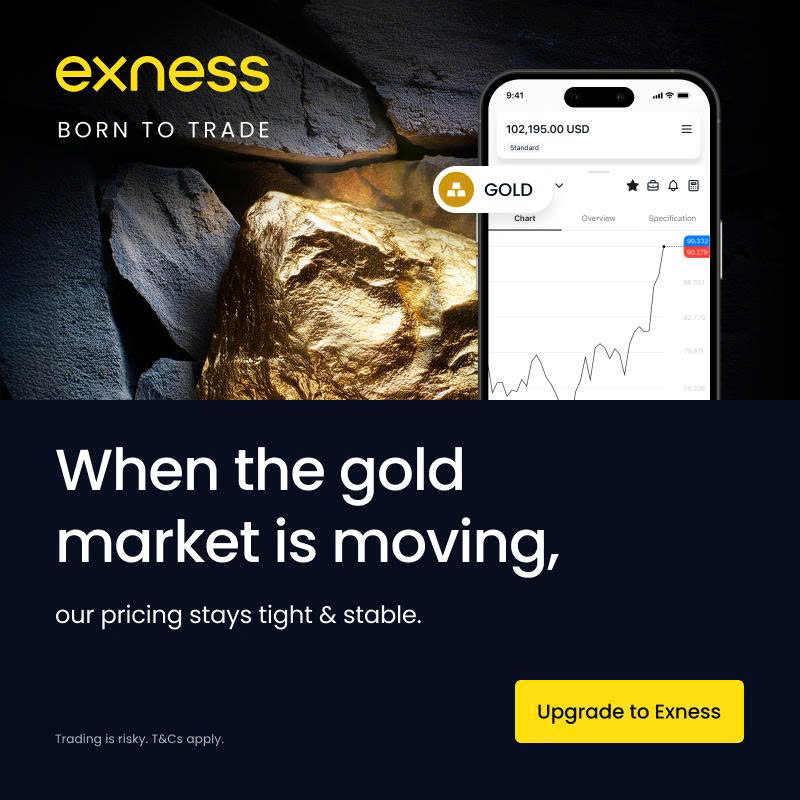
8 minute read
Exness vs OANDA: Which Forex Broker Is Right for You in 2025?
from Exness, OANDA
So, you’re trying to decide between Exness vs OANDA for your forex trading journey? Let’s cut to the chase: both are top-tier brokers, but they cater to slightly different types of traders. Exness shines with ultra-low spreads, high leverage, and lightning-fast withdrawals, making it a favorite for active traders and those in emerging markets. OANDA, on the other hand, boasts a stellar reputation, beginner-friendly tools, and strong regulatory oversight, especially for traders in the US and UK. But which one is better for you? Let’s break it down in this head-to-head comparison, covering fees, platforms, leverage, and more to help you choose the best forex broker in 2025.

✅ Trade with Exness now: Open An Account or Visit Brokers 👈
A Quick Overview of Exness vs OANDA
Before diving into the nitty-gritty, here’s a snapshot of both brokers to set the stage:
Exness: Founded in 2008, Exness is a global forex and CFD broker known for its low-cost trading, high leverage (up to 1:2000 or even unlimited in some regions), and a massive monthly trading turnover of over $325.8 billion. It’s regulated by multiple authorities, including the FCA, CySEC, and FSA in Seychelles, making it a trusted choice for international traders.
OANDA: Established in 1996, OANDA is one of the oldest and most respected forex brokers, with a strong presence in the US, UK, and beyond. It’s regulated by top-tier bodies like the CFTC, FCA, and ASIC, earning a Trust Score of 93/99 from ForexBrokers.com. OANDA is known for its transparent pricing and robust educational resources, ideal for beginners and analytics-driven traders.
Now, let’s compare them across key factors to see which broker fits your trading style.
1. Regulation and Trustworthiness: Who’s Got Your Back?
When it comes to forex trading, trust is everything. Both Exness vs OANDA are heavily regulated, but their approaches differ slightly.
Exness: Regulated by the FCA (UK), CySEC (Cyprus), and FSA (Seychelles), among others, Exness ensures client funds are held in segregated accounts and uses SSL encryption for data security. Its global reach and multiple licenses make it a solid choice for traders worldwide, especially in emerging markets.
OANDA: With oversight from seven Tier-1 regulators, including the CFTC (US), FCA (UK), and ASIC (Australia), OANDA is a powerhouse in terms of trust. Its long-standing reputation (nearly 30 years!) and transparent operations make it particularly appealing to traders in highly regulated markets like the US and UK.
Verdict: Both brokers are highly secure, but OANDA edges out slightly for traders prioritizing top-tier regulation in major markets. Exness, however, is a better fit for international traders due to its broader licensing.
2. Trading Costs: Spreads, Fees, and Commissions
Nobody wants to lose their profits to high fees, so let’s talk about costs.
Exness: Exness is a dream for cost-conscious traders. Its Raw Spread and Zero accounts offer spreads starting from 0.0 pips, with a small commission per trade. Standard accounts have no commissions but slightly wider spreads (from 0.3 pips). Exness also boasts instant withdrawals, which means you can access your profits in under a minute—pretty impressive
OANDA: OANDA offers two pricing models: spread-only and core pricing (spreads + commission). Its spreads are competitive but not as tight as Exness, averaging 1.61 pips on EUR/USD for standard accounts. The Elite Trader program offers rebates ($5–$17 per million traded) for high-volume traders, which can lower costs. However, OANDA’s fees are generally higher than Exness’s ultra-tight spreads.
Verdict: Exness wins for low-cost trading, especially for active traders who want tight spreads and fast withdrawals. OANDA is still competitive but better suited for traders who value transparency over the absolute lowest costs.

✅ Trade with Exness now: Open An Account or Visit Brokers 👈
3. Leverage: How Much Flexibility Do You Need?
Leverage can amplify your profits (and losses), so it’s a critical factor to consider.
Exness: Exness is a standout here, offering leverage up to 1:2000 or even unlimited in some regions (subject to conditions). For EU clients, leverage is capped at 1:30 due to regulatory restrictions. This high leverage makes Exness ideal for experienced traders looking to maximize position sizes.
OANDA: OANDA takes a more conservative approach, with leverage capped at 1:50 in the US and up to 1:200 in other regions. This suits risk-averse traders but might feel limiting for those who thrive on high-leverage strategies.
Verdict: Exness is the clear winner for traders seeking high leverage, while OANDA’s lower leverage is better for beginners or those who prefer a safer approach.
4. Trading Platforms: MT4, MT5, or Proprietary?
The platform you trade on can make or break your experience. Let’s see how these brokers stack up.
Exness: Exness supports MetaTrader 4 (MT4), MetaTrader 5 (MT5), WebTerminal, and mobile apps. It’s a haven for traders who love Expert Advisors (EAs) and scalping, as both MT4 and MT5 are optimized for automated trading. The WebTerminal is great for quick trades on the go, and Exness’s platforms are known for fast execution with minimal slippage.
OANDA: OANDA offers its proprietary fxTrade platform, MT4, MT5, and integration with TradingView. The fxTrade platform is intuitive and packed with advanced charting tools, making it a hit with beginners and analytics-driven traders. However, OANDA lacks MT5 support in some regions, which could be a drawback for advanced traders.
Verdict: Exness is better for traders who rely on MT4/MT5 and automated strategies. OANDA’s proprietary platform and TradingView integration make it a great choice for those who prioritize user-friendly tools and advanced analytics.
5. Tradable Instruments: Diversify Your Portfolio
Want to trade more than just forex? Here’s what each broker offers.
Exness: With over 230 instruments, Exness covers forex, CFDs, cryptocurrencies (like Bitcoin and Ethereum), stocks, indices, metals, energies, and commodities. Its 24/7 crypto trading is a big plus for traders looking to diversify.
OANDA: OANDA offers over 3,000 instruments, including 68 forex pairs, CFDs, stocks, indices, commodities, and cryptocurrencies (via its partnership with Paxos). While its range is broader than Exness’s, crypto trading is limited to CFDs and not available in the US.
Verdict: OANDA has a slight edge for sheer variety, but Exness is better for traders focused on forex and 24/7 crypto trading.
6. Account Types and Minimum Deposits
Your trading style and budget will influence which account type suits you best.
Exness: Exness offers Standard, Pro, Raw Spread, and Zero accounts. The minimum deposit is as low as $10 for Standard accounts, making it accessible for beginners. Pro, Raw Spread, and Zero accounts require $200 but cater to advanced traders with tighter spreads.
OANDA: OANDA has no minimum deposit for bank transfers (though $25 applies for other methods), which is great for beginners. Its spread-only and Elite Trader accounts cater to different trading volumes, with rebates for high-frequency traders.
Verdict: Exness is more flexible for low-budget traders, while OANDA’s zero minimum deposit (for bank transfers) is ideal for those just starting out.
7. Customer Support and Education
Good support and learning resources can make a huge difference, especially for new traders.
Exness: Exness offers 24/7 support in 14 languages via phone, live chat, and email. Its withdrawal process is lightning-fast (98% processed in under a minute), and it provides decent educational content for traders.
OANDA: OANDA’s customer service is available 24/5 and has won awards for responsiveness. Its educational resources are top-notch, with webinars, tutorials, and a comprehensive FAQ section, making it a go-to for beginners.
Verdict: OANDA takes the lead for beginners thanks to its extensive educational resources, but Exness’s 24/7 support and instant withdrawals are hard to beat for active traders.
8. Who Are These Brokers Best For?
Let’s wrap this up with a clear picture of who each broker suits best:
Choose Exness if:
You’re an active trader who wants ultra-low spreads and high leverage.
You trade forex, crypto, or other CFDs and need 24/7 access.
You value instant withdrawals and MT4/MT5 for automated trading.
You’re in an emerging market or prefer a low minimum deposit ($10).
Choose OANDA if:
You’re a beginner or analytics-driven trader who loves intuitive platforms like fxTrade or TradingView.
You prioritize top-tier regulation in markets like the US or UK.
You want robust educational resources and transparent pricing.
You trade high volumes and can benefit from rebate programs.
Final Thoughts: Test Before You Invest
Both Exness vs OANDA are exceptional forex brokers with unique strengths. Exness is the go-to for cost-conscious, high-leverage traders who want flexibility and speed. OANDA, with its user-friendly tools and strong regulatory framework, is perfect for beginners and those in regulated markets. To make the best choice, open a demo account with both brokers to test their platforms, spreads, and execution speeds. This hands-on approach will help you find the perfect fit for your trading goals in 2025.
✅ Trade with Exness now: Open An Account or Visit Brokers 👈
Read more:

